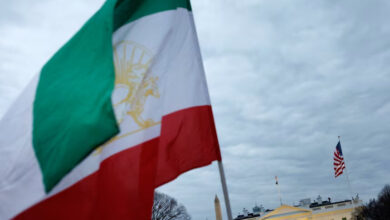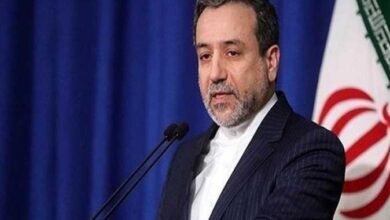If Egypt’s first post-revolution government plans to reshape the country’s foreign policy, particularly on issues like relations with Iran and Palestinian reconciliation, it will be forced to alter, or at least shift, its most important strategic alliances.
Along with the conservative Gulf monarchies, Egypt under Mubarak was a stalwart of the pro-US bloc in the Middle East. The country's peace treaty with Israel since 1979 pushed it away from more anti-Israel forces in the region, such as Iran.
The interim Egyptian government, which is run by the Supreme Council of the Armed Forces, has suggested that it aims to mend relations with Iran. The two countries have not had official relations since 1979, when Egypt provided refuge to the deposed Iranian shah following Iran's revolution.
In February, just after Mubarak was forced to step down, Egypt allowed Iranian naval ships to pass through the Suez Canal. Local media reported on Monday that Iran has appointed an ambassador to Egypt, though Iranian officials later denied this.
“Speaking about appointing ambassadors to the two countries before announcing an improvement in relations would be [premature],” an Iranian diplomat in Cairo said.
But if Egypt aims to substantially improve relations with Iran, it will have to sacrifice former alliances, experts say.
“Egypt’s state of diplomatic dependency on some Gulf countries” must end if Egypt normalizes relations with Iran, said Hassan Nafaa, a political science professor at Cairo University and a columnist for the Arabic edition of Al-Masry Al-Youm. Nafaa referred in particular to Egypt’s close relationship with Saudi Arabia, Iran’s regional nemesis.
The recent crisis in Bahrain, where a pro-democracy uprising largely lead by the Shia majority was quashed by the country's Sunni-dominated government with the help of Saudi Arabia, presents an obstacle for improved relations between Egypt and Iran. Iran, a Shia country, backs the Shia-dominated uprising. The Egyptian foreign minister initially hailed the uprising, but later stated that Gulf security was paramount.
Relations with Iran overlap with another crucial issue for Egyptian foreign policy: reconciliation between rival Palestinian factions Fatah and Hamas.
Mubarak’s government, in particular his intelligence chief Omar Suleiman, has long acted as a mediator between the rival Palestinian factions, but with no tangible results. “The Mubarak regime’s bias in Fatah’s favor greatly weakened Egypt’s position on the issue as it dealt with Hamas as a political scarecrow,” Nafaa said.
Close relations between Egypt and Fatah were part of the larger regional struggle, along with Saudi Arabia, the United Arab Emirates and the United States, against Hamas, Syria and Iran.
Egypt must end its “policy of aligning with the US and Israeli desires, which it followed during the Mubarak era, in addition to creating an independent and effective role which aims at achieving reconciliation,” said Ashraf al-Sharif, a lecturer at the American University in Cairo.
The new government’s attempts to normalize relations with Iran could stem from a desire to take advantage of Tehran's support for Hamas, said Mustafa al-Labbad, the director of Al-Sharq Center for Strategic and Regional Studies. Such a move could give Egypt indirect leverage over Hamas in its attempts to bring about reconciliation, al-Labbad says.
"If this happened it would be a true change in Egypt’s foreign policies, as it would be based on the idea of playing the political card in order to reach a strategic goal,” he said. “This is what the former Egyptian administration suffered from: a lack of alternative solutions."
While normalized relations with Iran could help with Palestinian reconciliation, it may create tensions between Egypt and its old ally Saudi Arabia. Supporting the embattled Egyptian president up until his last days in office, Saudi Arabia was one of Mubarak’s major regional backers. Economic ties with Saudi Arabia are important for Egypt's economy.
Egypt will have to tread a fine line. "I expect the Egyptian side to lean in favor of its own strategic interests, which includes putting an end to the Palestinian division, and if Iran might contribute to this, then why not," says al-Sharif.




